 Stop the Cap! has received a growing number of complaints from Comcast customers in Georgia who are paying the cable company an extra $35 a month to get back unlimited Internet access that is performing worse than ever before for online video streaming.
Stop the Cap! has received a growing number of complaints from Comcast customers in Georgia who are paying the cable company an extra $35 a month to get back unlimited Internet access that is performing worse than ever before for online video streaming.
J.J. LaFrantz in North Druid Hills reports his Internet speed for streaming videos dropped from 60Mbps under Comcast’s usage cap regime to less than 20Mbps after agreeing to pay for Comcast’s unlimited use insurance plan.
“Right after I paid The Great Satan their extortion to get unlimited service back, my Internet speeds dropped,” LaFrantz tells Stop the Cap!
LaFrantz has been in touch with Comcast several times about the speed degradation, with each representative providing a different excuse:
It’s the cable modem. “Comcast loves to blame customer-owned equipment for Internet problems, urging the unknowing to pay endless rental fees for Comcast equipment that supposedly fixes everything,” said LaFrantz.
It’s the holidays. “With the kids home from school, apparently Comcast cannot manage to handle the strain, or so they seem to suggest,” said LaFrantz.
It’s everyone but Comcast. “If their speed test performs adequately enough for them, it is no longer their problem, it is yours.”
Mysteriously, after Comcast “reprogrammed” his cable modem, his speed returned to normal.
Jakfrist posted a similar complaint on Reddit after he signed up for Comcast’s $35 insurance plan:
The speed test shows slower than I am paying for but still a reasonable speed but videos that previously started instantly are now saying I have to wait an hour to start so it can buffer out (iTunes Movies on AppleTV).
Like LaFrantz, a call to Comcast eventually led to the company reprogramming Jakfrist’s modem, which also made the video streaming issues disappear:

How much will your next broadband bill be?
After calling Comcast the first guy had no clue what I was talking about and I got escalated to another guy. The new guy tried to tell me that it was because I was using my own modem and it would be resolved if I used their modem.
I explained that I had opened a terminal window and was running a ping to google, Ookla (the speed test org), Bing, Netflix, Hulu, and iTunes. The only two experiencing issues / delays were iTunes and Netflix so my modem appears to be fine. They also asked if I had tried their video streaming service to see if it was slow as well. I just kinda laughed and said no thanks.
He asked me how old my modem was and tried to convince me my modem was bad again and all would be solved if I just leased a modem from them. I insisted my modem was fine that it doesn’t choose to filter out video content. He then told me that they would send a tech out to look at it.
I insisted that everything inside my house was fine and if they wanted to send someone out to check the things outside my house that would be fine but I wasn’t going to take a day off of work to have someone take a look at something I know is set up correctly.
He sighed deeply and said that he would see if he could update some settings in my modem. All the sudden my speed test went from 20Mbps to 60Mbps.
I ran the test on Netflix and told him even with the 60Mbps I was still only pulling 720p on Netflix and iTunes was even worse. He put me on hold for a couple minutes and reset my modem again and afterwards Netflix and iTunes seem to be functioning perfectly.
Customers not paying Comcast the extra $35 a month to rid themselves of usage caps are not getting off scot-free either.
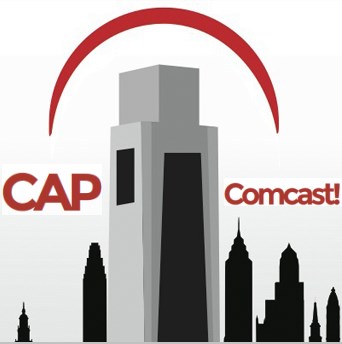 Jeff Wemberly reports his Comcast usage meter is recording unprecedented levels of usage he has never seen on his broadband account before the caps.
Jeff Wemberly reports his Comcast usage meter is recording unprecedented levels of usage he has never seen on his broadband account before the caps.
“We were well aware of Comcast’s new 300GB usage cap and began closely monitoring how we use our broadband service,” Wemberly writes. “We even have the kids streaming 100-150GB of streaming videos from a grandfathered Verizon Wireless unlimited data/hotspot account every month instead of using Comcast (serves Verizon right for jacking the price up – now we’re going to use it until we drop). We have three years of usage data from our router and we were certain we’d be using no more than 225GB a month after making that change.”
Instead, starting the same month Comcast’s cap went into effect, their reported usage more than doubled.
“Their meter is absolute bull—- reporting more than 700GB of usage every month starting after the caps went into effect,” Wemberly writes. “They aren’t just putting their finger on the scale, they are sitting on it!
Wemberly’s router reported the expected usage drop, with the family turning in 217GB of usage in November and 189GB so far this month. But Comcast’s meter reports 711GB in November and 748GB so far this month.
“We started getting the usage warning 11 days into November and 14 days in December,” Wemberly tells Stop the Cap! “It recorded 63GB of usage on Dec. 19, a day the family was out Christmas shopping. If someone was into our Wi-Fi, the router would have reported it. It doesn’t.”
Next month, Wemberly expects to begin getting bills that run $80 higher after Comcast’s overlimit fee grace period ends. Comcast told him its meter cannot possibly be inaccurate.
“You are forced to pay the extra $35 so you don’t have to pay $80,” Wemberly said. “The Gambino crime family must be kicking themselves wasting time with loan sharking and shakedowns. They should have learned from Comcast and extorted people legally with data caps.”
Wemberly intends to say goodbye to Comcast when AT&T’s U-verse with GigaPower arrives in his neighborhood.
“Paying AT&T $70 a month is cheap compared to Comcast’s endless greed,” Wemberly said. “We can’t wait to cancel.”
 With the FCC’s increasing skepticism that Comcast’s data caps are about fairness and not an attempt to discourage cable TV customers from cutting the cord and watching all of their shows online, Comcast today announced it was overhauling its data cap allowance and unlimited add-on plan.
With the FCC’s increasing skepticism that Comcast’s data caps are about fairness and not an attempt to discourage cable TV customers from cutting the cord and watching all of their shows online, Comcast today announced it was overhauling its data cap allowance and unlimited add-on plan.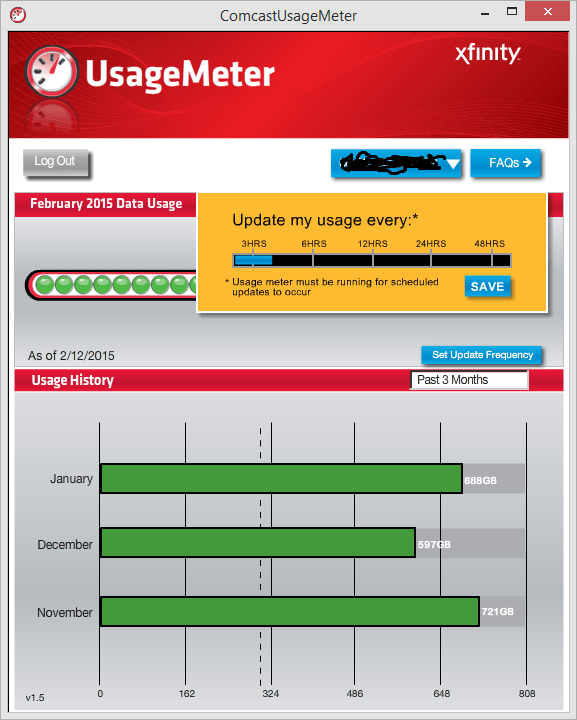 Comcast is also likely responding to thousands of customer complaints filed with the FCC complaining about Comcast’s data caps and the cost of their insurance plan (previously $30-35 depending on market) to avoid overlimit fees.
Comcast is also likely responding to thousands of customer complaints filed with the FCC complaining about Comcast’s data caps and the cost of their insurance plan (previously $30-35 depending on market) to avoid overlimit fees.

 Subscribe
Subscribe Stop the Cap! has learned customer complaints about Suddenlink Communications’ data caps have made an impact, and the company is planning to rollout a new campaign starting April 1 allowing premium customers to get their unlimited data back, eventually at a price.
Stop the Cap! has learned customer complaints about Suddenlink Communications’ data caps have made an impact, and the company is planning to rollout a new campaign starting April 1 allowing premium customers to get their unlimited data back, eventually at a price.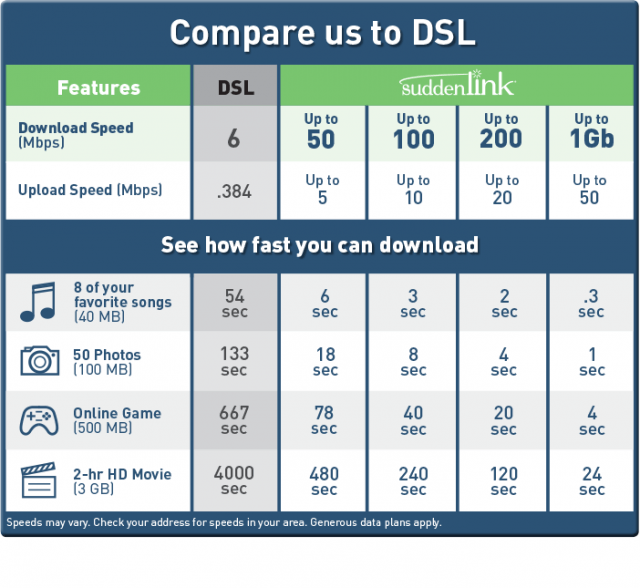 Customers will need to call Suddenlink to sign up for the offer (we’ve reached out to the company to learn the details we will share if we receive them), which provides unlimited service free for the first year. In year two, unlimited will cost $5 extra a month and after the second year Suddenlink will charge customers $10 extra.
Customers will need to call Suddenlink to sign up for the offer (we’ve reached out to the company to learn the details we will share if we receive them), which provides unlimited service free for the first year. In year two, unlimited will cost $5 extra a month and after the second year Suddenlink will charge customers $10 extra.

 AT&T has indirectly announced it will enforce hard data caps on its U-verse broadband service for the first time, imposing overlimit fees for customers that exceed their allowance unless they agree to pay $30 extra a month for a new unlimited add-on plan.
AT&T has indirectly announced it will enforce hard data caps on its U-verse broadband service for the first time, imposing overlimit fees for customers that exceed their allowance unless they agree to pay $30 extra a month for a new unlimited add-on plan.
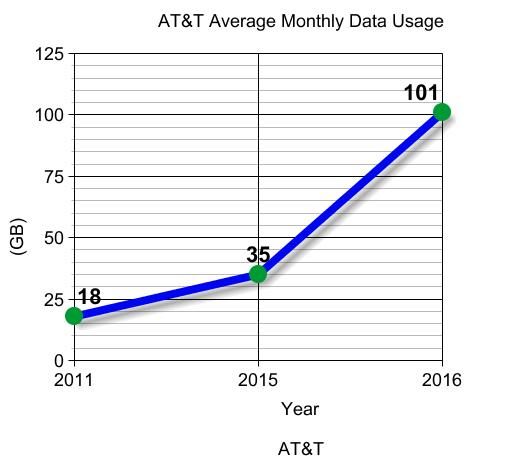
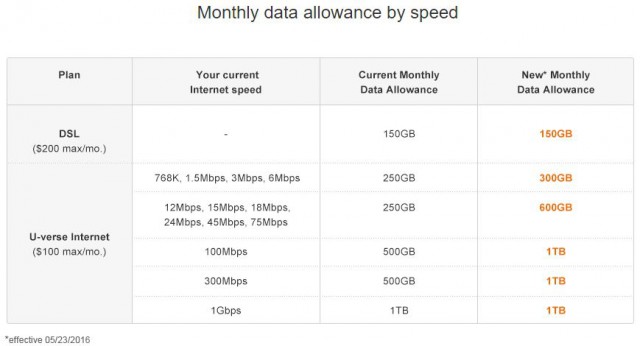
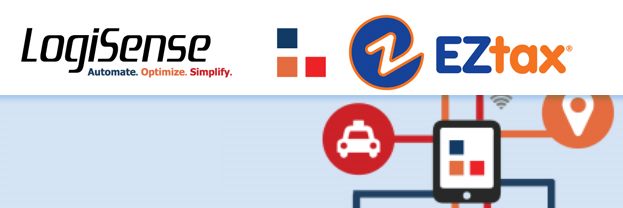 When reviewing your latest Comcast cable bill with overlimit fees on it (or a $30-35 upcharge to buy their insurance plan to keep extra fees off your bill), did you realize you are part of the Usage Economy?
When reviewing your latest Comcast cable bill with overlimit fees on it (or a $30-35 upcharge to buy their insurance plan to keep extra fees off your bill), did you realize you are part of the Usage Economy? Stop the Cap! has received a growing number of complaints from Comcast customers in Georgia who are paying the cable company an extra $35 a month to get back unlimited Internet access that is performing worse than ever before for online video streaming.
Stop the Cap! has received a growing number of complaints from Comcast customers in Georgia who are paying the cable company an extra $35 a month to get back unlimited Internet access that is performing worse than ever before for online video streaming.
 Jeff Wemberly reports his Comcast usage meter is recording unprecedented levels of usage he has never seen on his broadband account before the caps.
Jeff Wemberly reports his Comcast usage meter is recording unprecedented levels of usage he has never seen on his broadband account before the caps.